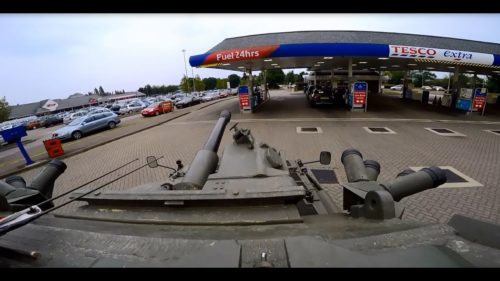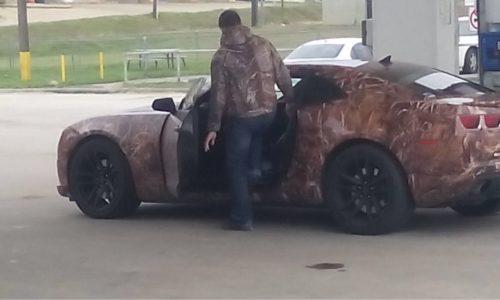
I keep telling myself this is a real story in the news and not a clever Duffel Blog or Onion writer trying to make fun of Americans.
Marines are being taught how to buy gas at local gas stations…
That is real, I swear. It comes from a piece called “Butchering pigs, foraging water and fuel ― the future of Marine logistics”
Someone clearly has the right idea here, it’s just being reported very awkwardly (e.g. nothing brings up a history of colonial violence and religious intolerance like butchering pigs).
When numerous local insecurities and large-scale anxieties threatened the empire, hunting pursuits involving the wily Indian pig, it was said, made soldiers out of boys; the attendant spectacles of masculinity aimed to exert symbolic dominance over the restive Indian masses.
It’s no coincidence that the legendary anti-war novel “Lord of the Flies” has a tragic hero named Piggy.
Anyway, back to the article, among all the noise it’s trying to bring up important topics like this one:
…they are reliant on a long supply chain that stretches from the South Pacific or northern Europe all the way back to the U.S.
Supply chains are indeed wasteful and full of vulnerabilities, not to mention crazy loopholes (e.g. Canadian Navy escapes environmental safety regulations while refueling Americans).
I particularly liked the following bits.
The first thing Marines need in those future distributed environments is learning to need less, said then-Lt. Gen. Eric Smith… “That’s insane, why would I move food?” Smith has since been promoted to general and now serves as the Corps’ assistant commandant. […] Eventually Tsukano [commander of Marine Corps Detachment Fort Lee, Virginia] sees the Corps bringing back field mess kits for certain style of deployments, replacing the disposable paper cups, plates and plastic utensils Marines use to eat most of their meals while on deployment. In addition to reducing the logistical burden that comes with transporting millions of disposable products to the front line, the metal plates, bowls and utensils would reduce the trash those units produce, making it easier for them to hide from the enemy.
Need less! Sounds like something out of WWII training manuals, or some 1970s hippie concert.
And then there’s this.
“All the cammie paint, the cammie netting, all the operating at night, that is all for naught if your logistics is loud and screaming in on these large trucks,” [Maj. Patrick Fitzgibbons, with Warfighter Instructor Battalion] added. The foraging techniques, if done right, will improve the Marines’ relationship with the locals around their base, turning the Marines’ housing into a local economy boon rather than a burden, he added.

To be fair, putting pressure on local populations to cough up their food for a foreign military doesn’t have the optimal sound to it. Is it really an economy boon when the Americans arrive in large numbers pointing guns and saying they’re very hungry because food no longer is being moved to them? Wars have literally started (1859 Pig War) due to American hostility negotiating the price of one pig.
Very interesting reading, and far too late unfortunately for all those soldiers whose lives were destroyed by decades of toxic logistics such as “burn pits” and abject failures to integrate with local communities.